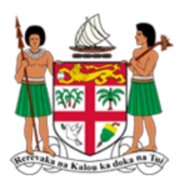Best Faith-Based Law Lawyers in Suva
Share your needs with us, get contacted by law firms.
Free. Takes 2 min.
List of the best lawyers in Suva, Fiji
About Faith-Based Law in Suva, Fiji
Faith-Based Law in Suva, Fiji, encompasses the legal principles and practices influenced by religious beliefs which affect areas like family law, inheritance, and charitable organizations. Fiji is a multicultural society with diverse religious practices, including Christianity, Hinduism, and Islam, each of which may have specific legal considerations rooted in their faith traditions. While the secular legal system governs most civil affairs, faith-based principles can come into play in circumstances that involve personal law or community customs.
Why You May Need a Lawyer
There are several situations where seeking legal advice in the arena of Faith-Based Law might be necessary:
- Marriage and Divorce: When marriages or divorces are conducted under religious rites, understanding both the religious and legal implications is crucial.
- Inheritance and Wills: Faith-based principles can influence the distribution of assets. A lawyer can ensure compliance with both local laws and religious directives.
- Employment Law: Disputes might arise regarding religious practices in the workplace, necessitating legal interpretation and protection under faith-based principles.
- Charitable Organizations: Religious institutions may have different legal obligations and privileges. Legal consultation ensures compliance and maximizes benefits.
Local Laws Overview
Several key aspects of Fijian law are relevant to Faith-Based Law:
- Constitutional Protections: The Fijian Constitution recognizes the freedom of religion, which supports practices related to Faith-Based Law.
- Customary Law: While Faith-Based Law is often distinct, customary laws sometimes overlap, particularly in areas involving indigenous Fijian communities.
- Family Law: Certain religious practices can influence family law matters, but ultimately legal decisions must align with the national legal framework.
- Non-Governmental Organizations (NGOs): Faith-based NGOs must adhere to regulations governing charities and religious organizations in Fiji.
Frequently Asked Questions
Do I have to follow Faith-Based Law in personal matters?
While personal adherence to religious law varies, all personal matters must comply with Fijian national law.
How does Faith-Based Law affect marriage and divorce?
Religious ceremonies might influence traditions and practices, but all marriages and divorces must be legally registered under Fijian law.
Can Faith-Based Law govern inheritance issues in Fiji?
Unless recognized by the legal system, religious directives cannot supersede national inheritance laws. It’s crucial to understand both spiritual and legal guidelines.
What is the role of the Fijian Constitution regarding religious practices?
The Fijian Constitution guarantees freedom of religion, allowing individuals to practice their faith but within the framework of national laws.
How can religious practices be incorporated into the workplace?
Employment agreements and company policies need to accommodate religious practices, balancing respect for faith with maintaining business efficiency.
Are there legal provisions for faith-based schools in Fiji?
Yes, faith-based educational institutions must adhere to both their religious guidelines and national educational regulations.
How does Faith-Based Law interact with secular law?
In cases of conflict, secular law prevails, though efforts are often made to harmonize the two, particularly in areas involving family and community customs.
Can Faith-Based Law affect commercial transactions?
Generally, commercial transactions are governed by secular law, though contractual agreements may incorporate faith-based principles by mutual consent.
What are the legal requirements for faith-based charities?
Faith-based charities must register under Fijian law, meeting all regulatory requirements to retain tax-exempt status and operate legally.
How are disputes involving Faith-Based Law typically resolved?
Disputes may be resolved through mediation or in legal courts, depending on the nature of the issue and the willingness of the parties to find a harmonious resolution.
Additional Resources
Here are some useful resources for individuals seeking advice in the field of Faith-Based Law:
- Fiji Law Society: Offers a directory of legal practitioners who might specialize in Faith-Based Law.
- Ministry of Economy - Registrar of Charitable Trusts: Provides resources and registration information for faith-based organizations.
- Fiji Human Rights and Anti-Discrimination Commission: Offers guidance on issues related to religious freedoms.
- Relevant Religious Councils: These may provide guidance and mediation in faith-based disputes.
Next Steps
If you find yourself in need of legal assistance regarding Faith-Based Law, consider the following steps:
- Identify the specifics of your legal issue to determine whether faith-based elements are involved.
- Consult with a legal professional specializing in Faith-Based Law for an initial assessment.
- Gather all relevant documents, including any religious directives or agreements, for your legal counsel.
- Explore available mediation services offered by religious councils as an alternative to formal legal proceedings if appropriate.
- Keep informed of any changes in both national and faith-based legal guidelines to effectively manage your situation.
Lawzana helps you find the best lawyers and law firms in Suva through a curated and pre-screened list of qualified legal professionals. Our platform offers rankings and detailed profiles of attorneys and law firms, allowing you to compare based on practice areas, including Faith-Based Law, experience, and client feedback.
Each profile includes a description of the firm's areas of practice, client reviews, team members and partners, year of establishment, spoken languages, office locations, contact information, social media presence, and any published articles or resources. Most firms on our platform speak English and are experienced in both local and international legal matters.
Get a quote from top-rated law firms in Suva, Fiji — quickly, securely, and without unnecessary hassle.
Disclaimer:
The information provided on this page is for general informational purposes only and does not constitute legal advice. While we strive to ensure the accuracy and relevance of the content, legal information may change over time, and interpretations of the law can vary. You should always consult with a qualified legal professional for advice specific to your situation.
We disclaim all liability for actions taken or not taken based on the content of this page. If you believe any information is incorrect or outdated, please contact us, and we will review and update it where appropriate.











